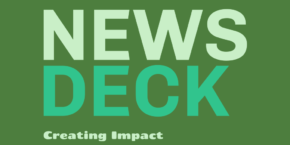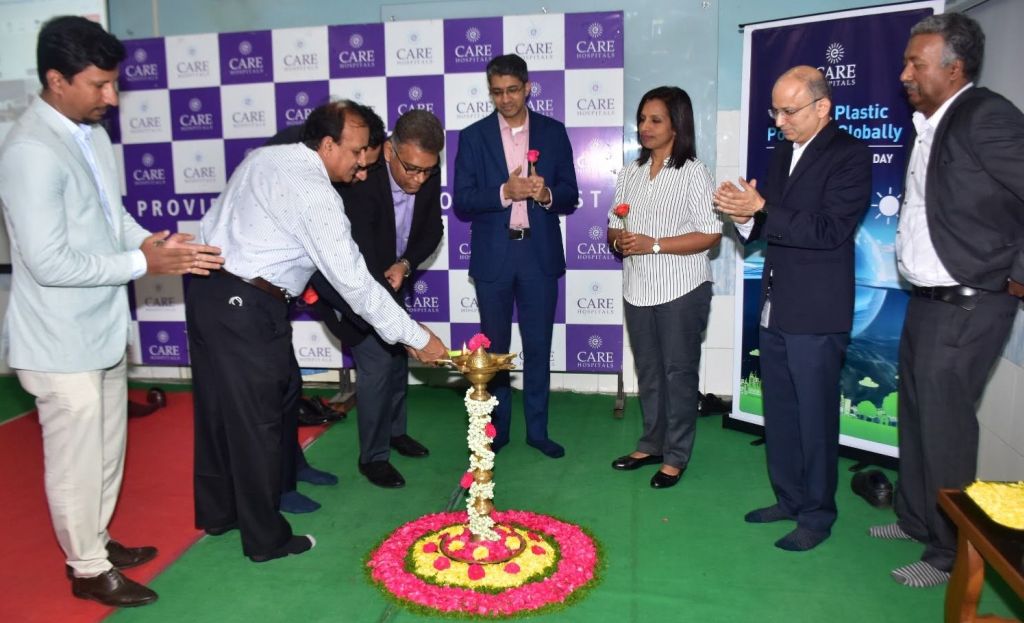At Murata, we recently implemented a new human resource development program to cultivate future management leaders called “Make2030 – Be an Innovation Leader.”
What insights and inspiration did the participants gain through this program that fosters creativity for the future and broadens their horizons and perspectives as leaders?
In this article, Moriyasu, Shuto, Nakajima, and Haraguchi, who participated on “Make2030,” reflect on their vision of ideal leadership qualities and how their mindset shifted at each stage of the training.
1. A start mixed with excitement and apprehension for an unprecedented training program
In May 2022, Make2030 launched as a large-scale human resource development program, spanning a year and a half and involving 130 employees from across the organization. Nakajima and Shuto, who joined Murata in 2008, recall first attending the training with a mixture of excitement and apprehension.
Nakajima: “I was both excited and nervous about the prospect of training ambassadors for Murata's long-term trajectory plan, 'Vision 2030.' Imagining what our futures will look like in 2023 is overwhelming, I wasn't sure if I would be able to imagine that far into the future. I tend to get a bit overwhelmed by my immediate duties, so I wasn't sure if I would be able to think about anything that lies further down the line.”

Shuto: “I was the same, I was both looking forward to what was going to take place, and worrying about whether I could handle it. As a pre-training assignment, I submitted 'What I want to accomplish at Murata,' and I remember returning to the feeling I had when I joined, wanting to interact with people around the world and contribute to society through my work, so I approached the training with a fresh and open mindset.”

Shuto, production and sales systems department
Haraguchi, who joined Murata in 2017 as a mid-career hire, remembers the training content feeling very fresh to him.
Haraguchi: “While I have received training on specific skills and knowledge, the content of Make2030, in which we ourselves considered the issues that Murata should tackle and imagined the future, was something entirely new. I remember feeling slightly surprised, unnerved, and excited, but I saw it as an excellent opportunity to interact with people from various departments and decided to approach it positively and enjoy the experience.”

Haraguchi, new business promotion department
Moriyasu, who has been at Murata for 20 years, said that he felt the scale of Make2030 was much larger than any training that he had previously received.
Moriyasu: “The central message of Make2030, 'Be an Innovation Leader,' had a strong impact and it made me appreciate how serious Murata is about human resource development, as well as the expectations placed on me. I was impressed that both the management office and the executives declared their intention to fully support this type of training.”

Moriyasu, millimeter wave business promotion department
On the first day of the training, participants watched a video conversation between Board Member Minamide, then Head of Human Resource Development Hayata, and then Head of Management Strategy Suchi.
Moriyasu: “They talked passionately about their clear vision for the future and plan for connecting generations, making everything about Make2030 fall into place for me. It was also in that moment that the term 'Innovation Leader' became a tangible reality that seemed within my grasp.”
2. Transitioning from thinking you understood something to being able to concretely perceive it
In step 1 of the human resource development program, participants attended lectures on core themes related to medium-term management issues and discussions with experts and executives. Each session afforded new insights and inspiration.
Shuto: “There were 11 lectures on core themes, and I had to make a concerted effort each time in order to understand the lecture content. The lecture on constructing the third-layer business model particularly left an impression on me, and allowed me to gain a deeper understanding of the new business model that Murata is attempting to establish. Regarding the solutions business, I realized that there is also potential for new business in my field of logistics, therefore linking the company's future to my own.”
Haraguchi: “The lecture on preparing for geopolitical risks had a strong impact on me. It was illuminating to learn that Murata considers countermeasures for various global situations and is prepared for various different scenarios. Regarding the other core themes, I have gone from merely thinking that I understood to being able to concretely perceive them.”
Moriyasu: “The lecture on preparing for geopolitical risks was truly eye-opening. What I learned in the lecture led me to hold discussions with other staff in my department to consider all the potential risks in the department and discuss measures to deal with them.”
Nakajima: “The discussion featuring President Nakajima on management that creates a continuous cycle of social and economic value left an impression on me. Mention of the word 'non-financial' particularly resonated with me. I was able to appreciate the importance of regarding initiatives that increase social value as 'non-financial value,' and using them to connect to future financial value. Human resources are a perfect example of 'untapped financial' assets, and so it inspired me to create an action plan on the theme of human resources in step 2 of the training.”
After each lecture, the participants engaged in a group discussion and exchanged their thoughts on what they had heard.
Shuto: “At first, I was afraid that I would reveal my lack of knowledge, but I was relieved when I realized that everybody is in the same boat, gradually deepening their understanding. When someone in the group was knowledgeable on a specific core theme, they would lead the discussion. The discussions we had benefitted everyone, and towards the end I looked forward to group discussion time.”
Moriyasu: “Since the discussions afforded me the chance to talk to people from departments I don't usually interact with, it was a great opportunity for networking. There are still many departments and people within the company whose work I'm unfamiliar with, and so it was extremely valuable to gain new knowledge and learn about issues through actual conversation.”





